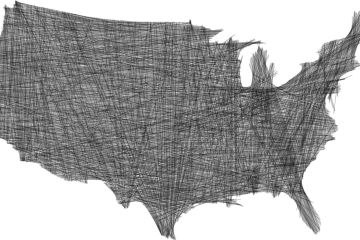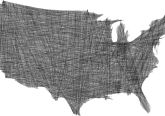U.S. Supreme Court invalidates ATF Rule Classifying Bump Stocks as Machineguns
Today, the U.S. Supreme Court held that the Bureau of Alcohol, Tobacco, Firearms and Explosives unlawfully exceeded its authority by classifying bump stocks as machineguns.
The National Firearms Act defines a “machinegun” as “any weapon which shoots, is designed to shoot, or can be readily restored to shoot, automatically more than one shot, without manual reloading, by a single function of the trigger,” including any “part designed and intended solely and exclusively . . . for use in converting a weapon into a machinegun.” The ATF long classified bump stocks—which enable rapid fire with semiautomatic firearms while still requiring multiple functions of the trigger—as non-machineguns. But in 2018, the ATF reversed course and promulgated a rule altering the statutory definition of “machinegun” and declaring that bump stocks are machineguns.
The Supreme Court held that the NFA’s definition of “machinegun” clearly does not cover bump stocks, and thus that the ATF exceeded its statutory authority by classifying bump stock as such. Bump stocks, the Court determined, are not machineguns because (1) they do not enable semiautomatic firearms to fire more than one shot “by a single function of the trigger,” (2) and even if they did, the firearm would not be firing “automatically.” Rather, the Court explained, “[a] bump stock merely reduces the amount of time that elapses between separate ‘functions’ of the trigger.”
- Buy All-American!
- Bring health and vitality back to your body with these non-transdermal patches
- Get your Vitamin B17 & Get 10% Off With Promo Code TIM
- How To Protect Yourself From 5G, EMF & RF Radiation - Use promo code TIM to save $$$
- The Very Best All-American Made Supplements On The Maret
- Grab This Bucket Of Heirloom Seeds & Save with Promo Code TIM
- Here’s A Way You Can Stockpile Food For The Future
- Stockpile Your Ammo & Save $15 On Your First Order
- Preparing Also Means Detoxifying – Here’s One Simple Way To Detoxify
- The Very Best Chlorine Dioxide
- All-American, US Prime, High Choice Grass-Fed Beef with NO mRNA, hormones or antibiotics... ever!
“The Supreme Court has properly restrained executive branch agencies to their role of enforcing, and not making, the law,” said NRA-ILA Executive Director Randy Kozuch. “This decision will be pivotal to NRA’s future challenges of ATF regulations.”
The ruling makes clear—as Justice Alito emphasized in a concurring opinion—that only an act of Congress—not an ATF rule—can prohibit bump stocks. In addition to reining in the ATF’s unlawful rule, the Cargill ruling will help ensure that future unelected government officials cannot ban firearms and accessories by administrative fiat. The ruling also casts doubt on recent ATF rules—including the “pistol brace,” “frame or receiver,” and “engaged in the business” rules—in which the ATF contradicts Congress’s explicit statutory language.
Article by NRA-ILA
Don't forget to like us on Facebook and follow us on Twitter.














